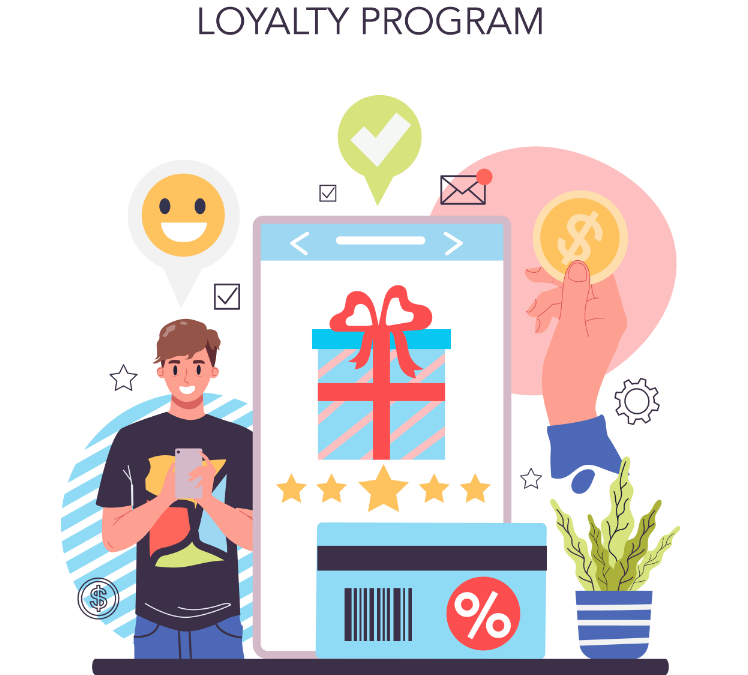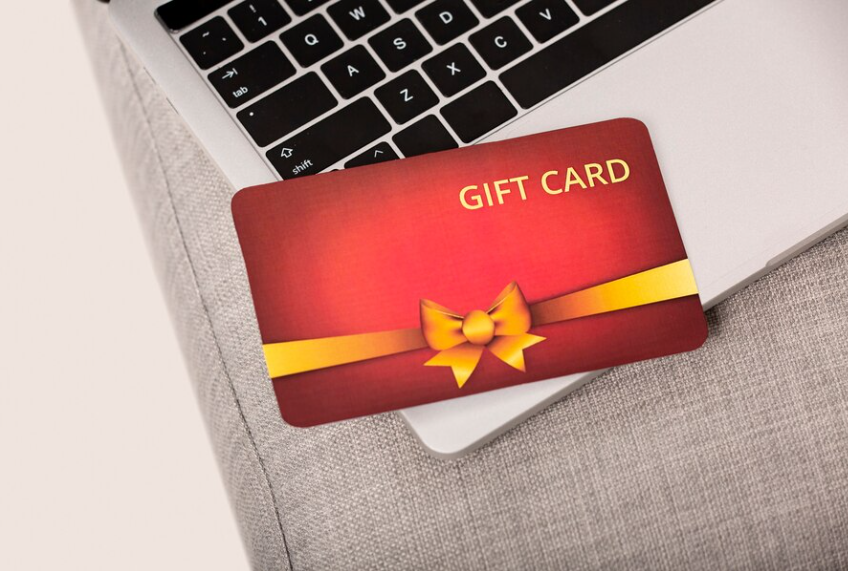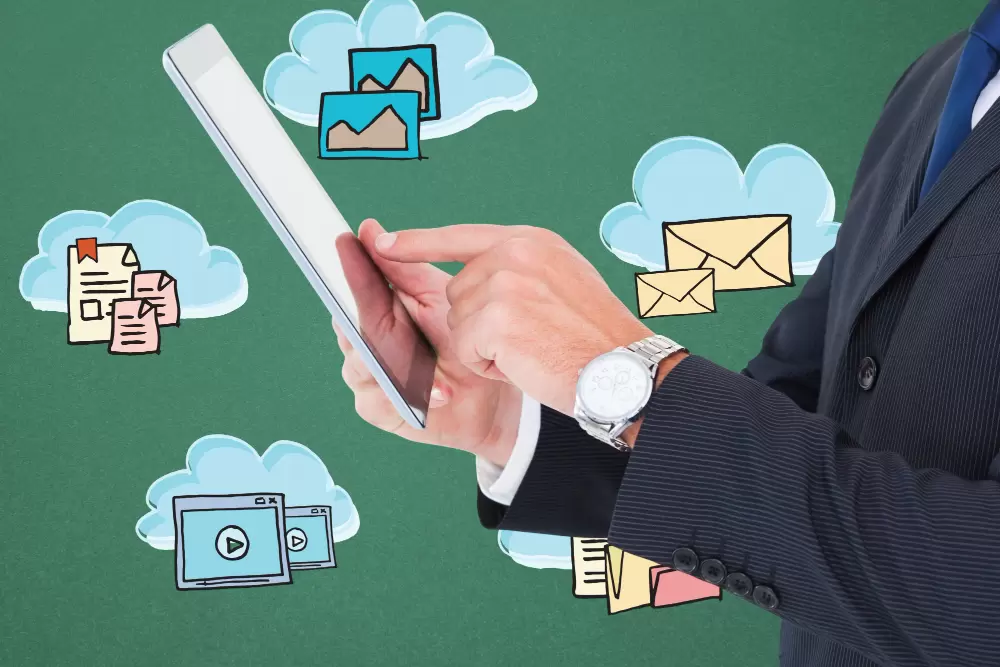In today's crowded SaaS market, keeping customers is a constant battle. With so many options just a click away, users can easily switch to a competitor if unsatisfied. This "churn" hurts your business—loyal customers are much more valuable than cconstantly acquiring new ones.
The answer? A well-designed loyalty program! It rewards users for sticking with you, fostering a sense of value, and keeping them engaged with your product. The benefits are real: increased customer lifetime value, deeper product exploration, and a stronger overall relationship.
This guide will equip you with the tools to build an effective loyalty program. We'll cover everything from setting clear goals to crafting meaningful rewards, ensuring your program keeps customers happy and your business thriving.
Defining Your Program Goals
The first step is determining what you want to achieve with your loyalty program. This might sound obvious, but there's a key difference between attracting new users (acquisition) and keeping existing ones happy (retention).
Customer acquisition strategies are all about getting people to sign up for your SaaS product in the first place. Think of flashy ads, free trials, and introductory discounts.
Retention strategies, on the other hand, focus on making sure existing customers stick around and keep using your product. This is where your loyalty program app comes in.
Loyalty programs create value and appreciation for your existing customers, encouraging them to stay engaged and continue using your product. Rewarding them for their loyalty builds stronger relationships and boosts your bottom line.
How do you measure this success? Here's where setting clear, measurable goals comes in. Some key objectives for building a SaaS loyalty program could be:
- Increasing Customer Lifetime Value (CLTV): This refers to the total revenue a customer brings your business over their entire relationship. A loyalty program can encourage repeat purchases and upgrades, increasing CLTV.
- Enhancing Product Engagement: A well-designed program can motivate users to explore different features and functionalities within your SaaS product, leading to a more positive overall experience.
- Reducing Churn Rates: Churn refers to the number of customers who cancel their subscriptions. Loyalty programs can incentivize users to stay subscribed, decreasing churn rates.
For example, according to Hubspot, increasing customer retention rates by 5% can increase profits by 25% to 95%. By defining clear, quantifiable objectives, you can better track the success of your program and make necessary adjustments.
Understanding Your Customers
Imagine offering free gym socks to someone who has never used the fitness features in your workout app! A targeted approach is essential for a successful loyalty program. This means understanding your customers and what motivates them.
Here's where customer segmentation comes in. You can create a program that resonates with each segment by grouping your users based on their behavior, preferences, and spending habits. Consider it offering movie buffs exclusive access to new releases while rewarding heavy data users with bonus storage space.
To gather this valuable customer data, you can use surveys, track user behavior within your app, and analyze how they typically use your product. This is the basis for the emergence of conversational marketing, which uses real-time, personalized interactions to engage customers and gather insights.
According to an Accenture report, 91% of consumers are more likely to shop with brands that provide personalized offers and recommendations. Tailoring rewards based on customer segments can significantly enhance the perceived value of your loyalty program, leading to higher engagement and satisfaction.
Designing Your Loyalty Program Structure
Consider structures such as points-based systems, tiered memberships, and gamification elements when designing your loyalty program. Each structure has pros and cons, and the choice depends on your specific SaaS application.
Points-based systems reward users for specific actions, such as purchases or referrals, which can be redeemed for rewards. This structure is straightforward but may require frequent updates to keep users engaged.
Tiered memberships offer different levels of rewards based on the customer's status or spending. This encourages ongoing engagement as users strive to reach higher tiers.
Gamification elements introduce game-like features such as challenges and leaderboards to make the loyalty program more engaging and fun.
For instance, Dropbox uses a referral program that rewards users with additional storage space for inviting friends, which aligns perfectly with their product offering and encourages active engagement.
Selecting Meaningful Rewards
Sure, discounts are nice, but a truly effective loyalty program offers a wider range of rewards that resonate with your customers. Think beyond simple price cuts and consider what would genuinely excite them.
The key is to create a tiered system with rewards that increase in value as users become more engaged. This motivates them to delve deeper into your product and discover its potential.
What kind of rewards might work? Here are a few ideas:
- Early access to new features: Let your loyal users try out the latest updates before anyone else.
- Priority customer support: Offer them faster response times and dedicated support channels.
- Exclusive content: Provide them with valuable resources, tutorials, or webinars not available to everyone.
A Deloitte survey found that over half (54%) of consumers prefer a mix of monetary and experiential rewards. By focusing on rewards that enhance their product experience and satisfaction, you create a loyalty program that truly stands out.
Making it Easy to Participate
Imagine a loyalty program so confusing that you give up on it before starting. Yikes! That's why making participation effortless is key. Here's how:
- Seamless Integration: Your loyalty program should feel like a natural part of your existing SaaS platforms. No need for users to jump through hoops or navigate separate apps.
- Straightforward Sign-Up: Signing up should be quick and clear. Eliminate lengthy forms and complicated steps.
- Crystal-Clear Communication: Users should easily understand the program rules, how to redeem rewards, and how to track their progress. Think of simple explanations and easy-to-find information.
For instance, look at Slack. Their referral program awards points for successful sign-ups. It's easy to grasp and participate in, contributing to its success.

Keeping Your Program Engaging
Loyalty programs can be amazing, but if they become stale, users might lose interest. To avoid this "program fatigue," here are some ways to keep things fresh and exciting:
- Introduce challenges and contests: Think of fun activities or competitions tied to your product. This can encourage users to explore new features and boost engagement.
- Offer exclusive content or events: Provide special perks like early access to new features, webinars, or exclusive content for loyal users. This creates a sense of VIP treatment.
- Continuously gather user feedback: Regularly ask your customers for their thoughts on the program. This feedback helps you understand what's working and what can be improved.
By keeping things new and exciting, you can ensure your loyalty program remains a valuable tool for keeping users engaged and happy, just like how Hubspot uses frequent updates and challenges to keep their program successful.
Measuring Success and Making Adjustments
Like any business strategy, you need to track how well your loyalty program is doing in light of your overall SaaS marketing metrics and strategies. To measure success, focus on key numbers like:
- User Participation Rates: How many users are actively involved in the program?
- Redemption Rates: Are users taking advantage of the rewards offered?
- Impact on CLTV: Are users sticking around longer and spending more overall?
Analyzing this data lets you see what's working and what's not. Maybe a certain reward isn't popular? If you see high redemption rates for a specific reward type, consider adding more similar options to keep users happy.
For instance, an LMS vendor offers new online cybersecurity courses with certificates as rewards. Analyzing data might show high redemption rates for these courses. This tells the vendor that users value these educational rewards. They can then adjust the program by adding cybersecurity courses or expanding to other in-demand training topics based on user feedback.
The key is to use data and user feedback to constantly improve your program. By making adjustments based on real-world results, you can ensure your loyalty program delivers long-term benefits for you and your customers.
Conclusion
Creating a successful SaaS loyalty program involves a strategic approach encompassing clear goals, customer understanding, well-designed structures, meaningful rewards, seamless participation, continuous engagement, and data-driven adjustments. By implementing these elements, SaaS businesses can enhance customer retention, increase engagement, and drive growth.
While challenges may arise, the potential benefits of a well-executed loyalty program far outweigh the difficulties. Resources such as industry reports, customer feedback, and expert insights can provide further guidance. Start building your loyalty program today and watch your SaaS business thrive.


 Table of Content
Table of Content










